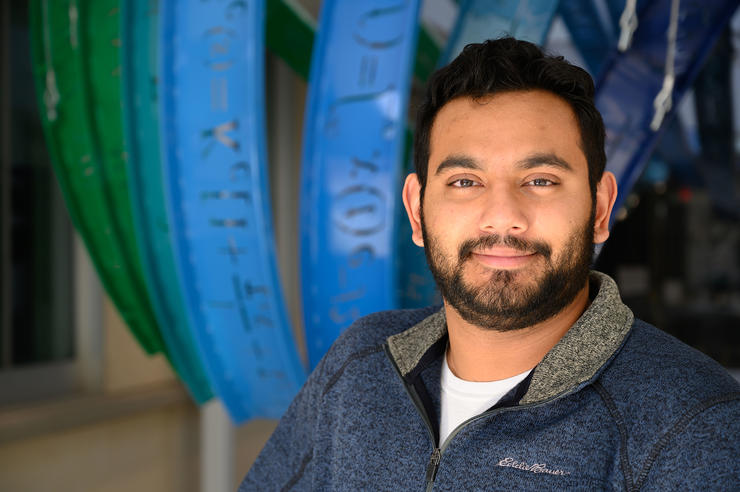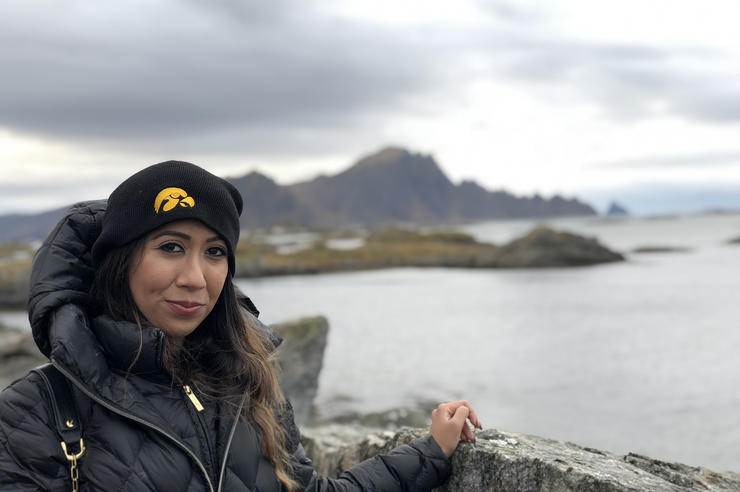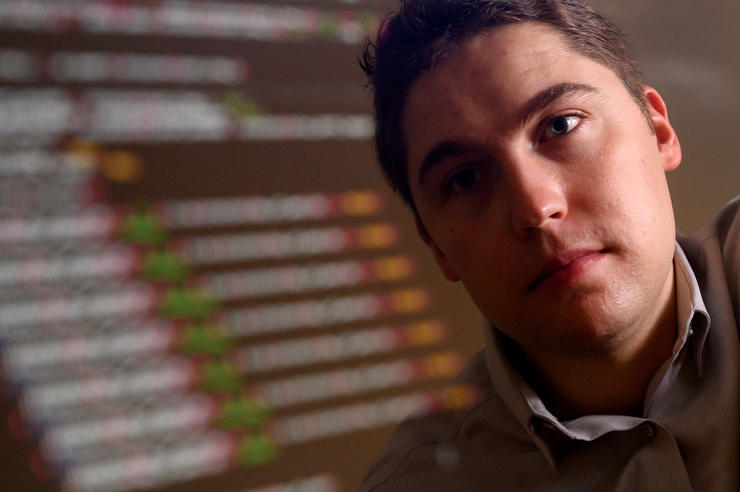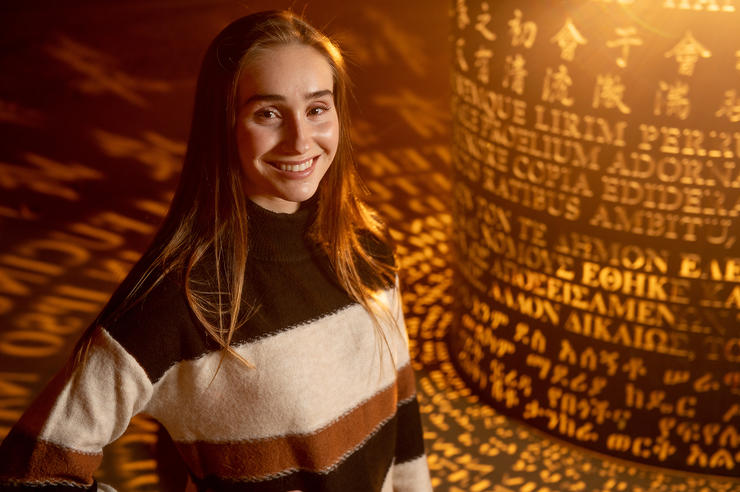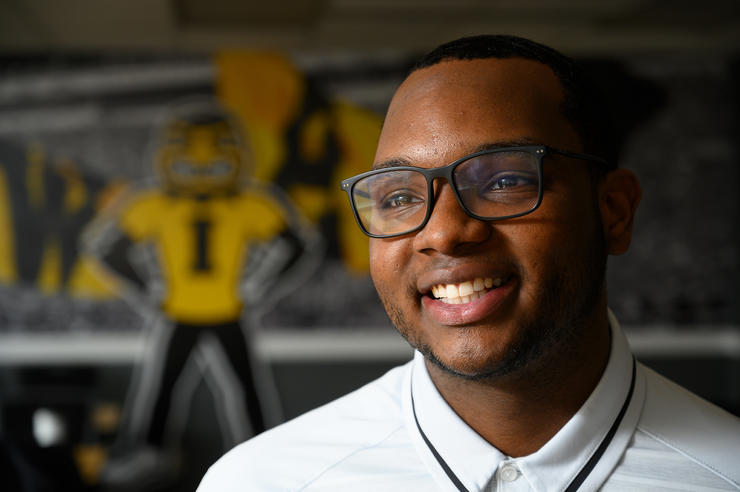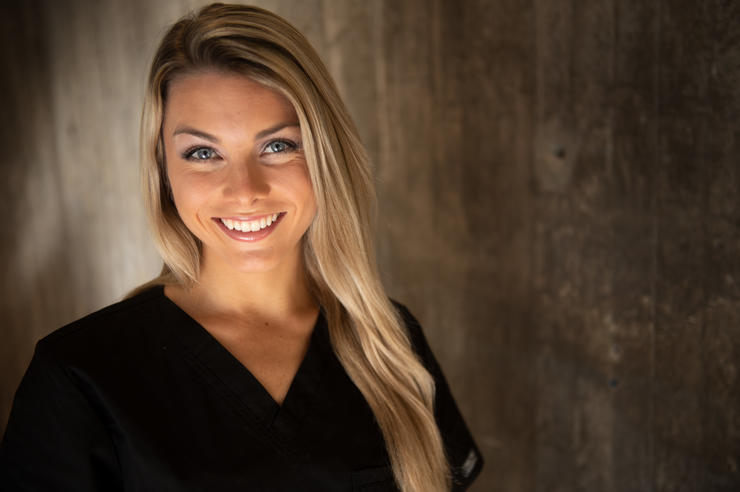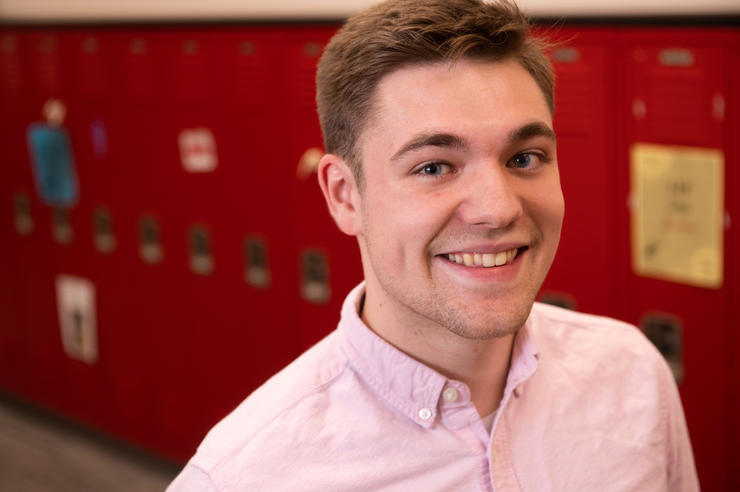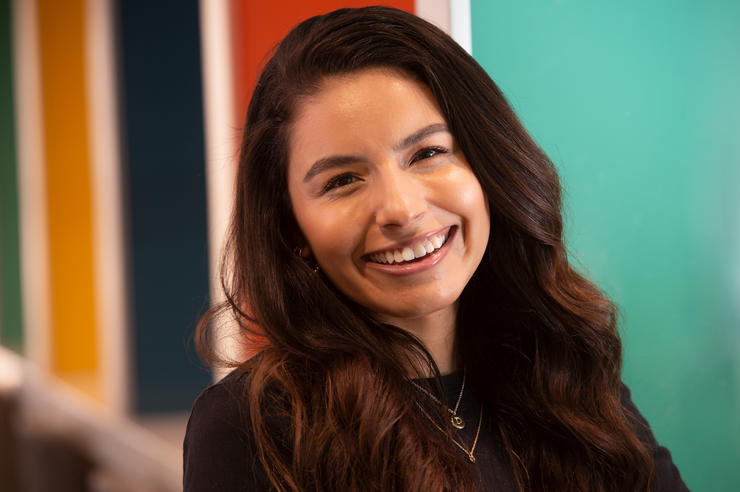‘Iowa is the most magical place’
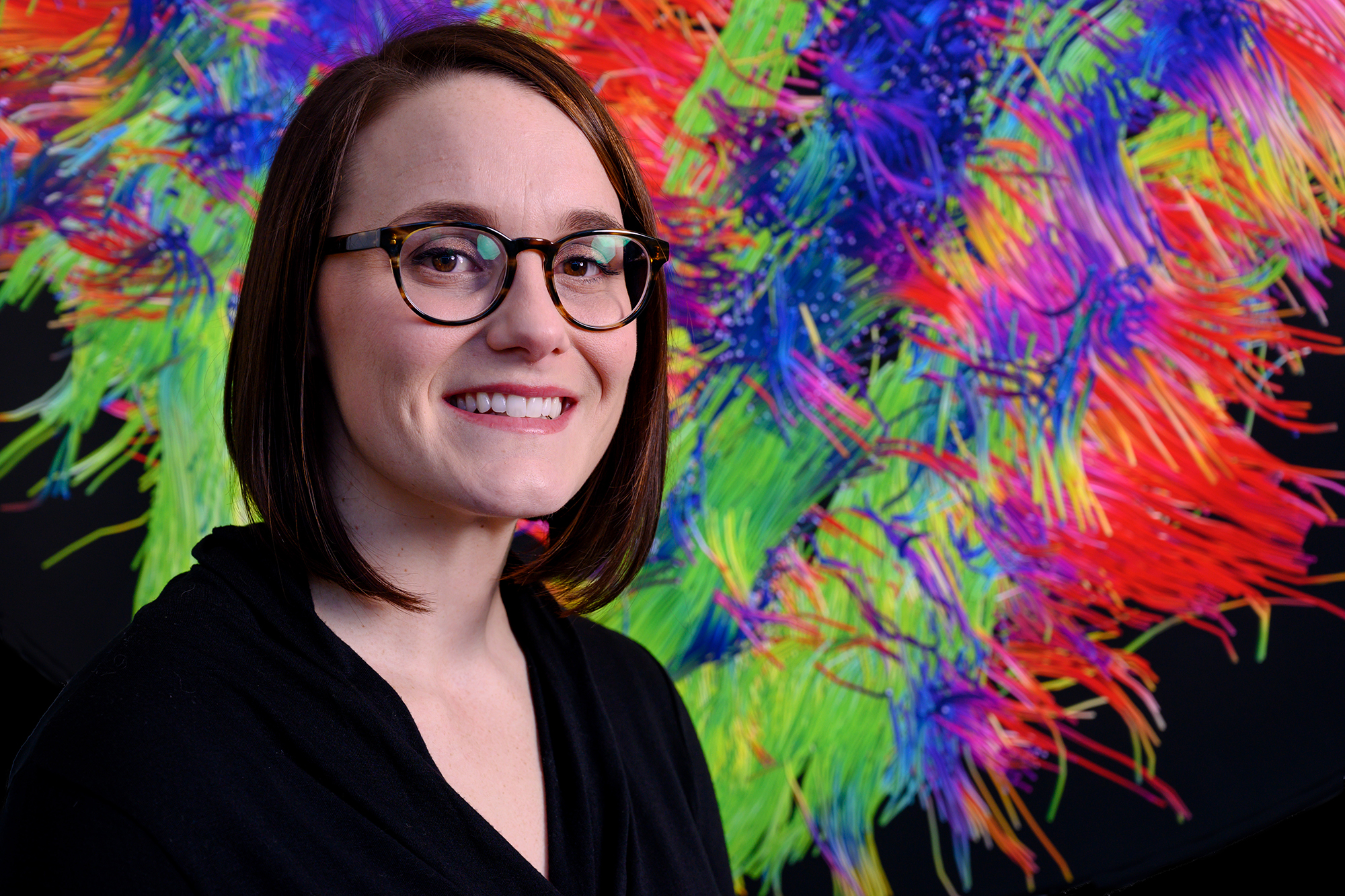
Degree: PhD in health and human physiology
Hometown: Bandera, Texas
Future plans: Postdoctoral fellowship at the University of Colorado Anschutz Medical Campus in Denver
Lyndsey DuBose may never have entertained coming to the University of Iowa if it weren’t for a coach acting as a de facto ambassador for the university.
DuBose was a scholarship rower at the University of Texas when she learned about the Hawkeye State from Amy Smith, a volunteer rowing coach who had graduated from Iowa in 2009.
“She always said ‘Iowa is the most magical place in the world,’” DuBose says of Smith, who rowed at Iowa.
Some time later, DuBose, who is from Bandera, Texas, was considering graduate degree programs. She remembered what her coach from Iowa had said.
“It kind of stuck with me when I started looking at programs,” DuBose recalls. “I Googled ‘human physiology departments’ and, lo and behold, Iowa pops up. And, the rest is history, as they say.”
“I tell people who are interviewing here that it’s really up to you and what you can take on, because the opportunities are endless. The only thing that will limit you is yourself and the number of hours in the day.”
Indeed, DuBose will graduate from Iowa in December with a doctorate in health and human physiology, and has secured a postdoctoral fellowship to build upon her research into the effects of menopause and aging on blood vessel function in the human heart and brain—and how that may increase women’s susceptibility to Alzheimer’s disease.
“The research environment here is fantastic,” DuBose says. “I tell people who are interviewing here that it’s really up to you and what you can take on, because the opportunities are endless. The only thing that will limit you is yourself and the number of hours in the day.”
DuBose maximized her time at Iowa as soon as she stepped on campus in fall 2013. She has studied all along with Gary Pierce, associate professor in the Department of Health and Human Physiology, earning a master’s degree in 2015 and now a doctorate.
Pierce praises DuBose for her dedication, organization, and resilience.
“She really has the all the qualities to be successful in this business,” says Pierce, who joined the faculty at Iowa in 2011 and brought on DuBose as his first doctoral student.
DuBose worked closely with Pierce; Laura Ponto, professor in the Department of Radiology; David Moser, professor in the Department of Psychiatry; and Michelle Voss, assistant professor in the Department of Psychological and Brain Sciences, to tease out how aging contributes to stiffening in the aorta and common carotid, major blood vessels connecting the brain and the heart, and how that stiffening may heighten the risk for dementia, most notably Alzheimer’s.
During that time, DuBose picked up valuable skills, such as learning how to apply magnetic resonance imaging (MRI) and positron emission tomography (PET) to measure blood flow in the brain. She also perfected her ability to measure vascular stiffness, a core facet of her and Pierce’s research.
“There are a lot of really hard moments, but there are a lot of great moments with a lot of great payoff to them,” DuBose says. “At the end of the day, I really love what I do, and I still have a lot of questions that are unanswered. The most fun part is it’s not over yet.”
“I’ve been very spoiled and very fortunate to be in this environment, and to have it be the foundation of my career.”
Pierce recalls DuBose’s determination and dedication to her craft as she labored over her scheduled talk at the 2017 Experimental Biology annual meeting in Chicago.
“We finished practicing, and I could tell it was not polished, to be blunt,” Pierce says. “I said, ‘You know, you only have 10 minutes. You’ve got to get this where it’s clear, it’s concise.’ From the time we left practice to the time she presented at the meeting, maybe three or four days later, clearly she had put the time in and had produced a nice, solid presentation.
“Now, she’s at the point where she’s very independent, she’s ready to move on,” Pierce adds. “I find myself now trying to keep up with all the knowledge she has gained.”
DuBose will move into a postdoctoral fellowship at the University of Colorado Anschutz Medical Campus in Denver, the largest academic health center in the Rocky Mountain region. There, she will investigate how women are more likely than men to develop Alzheimer’s disease, including the changes in the major arteries that connect the heart and the brain as they relate to menopause and aging.
“I’m not deviating that much from what I’ve been doing,” DuBose explains. “Menopause also has changes on the aorta and the common carotid. And even prior to menopause, there are sex differences in the geometry and the structure of these arteries that increase the vascular burden with aging in women. So, my postdoctoral research will build on my PhD work that I think may help explain why women are more likely to develop Alzheimer’s disease, and that’s because they have a greater vascular burden with aging.”
Ultimately, DuBose would like to be a tenure-track professor at a major research university—like Iowa.
“I’ve been very spoiled and very fortunate to be in this environment, and to have it be the foundation of my career,” says DuBose, who adds that her involvement in the Graduate Student Senate broadened her understanding of the inner workings of a research university. “‘Iowa nice’ exists throughout the university, and I think people take on that culture—in their relationships with their students, with mentees, in their research.
“It’s very hard to leave.”
